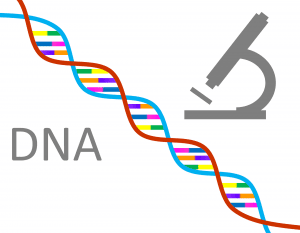Cancer Prevention and Support from a Functional Nutritionist’s Perspective
 There are few things in life as terrifying as getting a cancer diagnosis. Whether it is your health that’s in question or that of a family member, this is scary stuff.
There are few things in life as terrifying as getting a cancer diagnosis. Whether it is your health that’s in question or that of a family member, this is scary stuff.
I know firsthand. You see, my family seems to rock the cancer diagnoses.
My father had melanoma, my brother had basal cell carcinoma, I’ve had a basal cell carcinoma and my mom has had basal cell carcinoma, squamous cell carcinoma, ductal carcinoma in situ and most recently, invasive ductal carcinoma. Whew! That’s a lot of cancer for four people.
Even a rather “easy” cancer like basal cell carcinoma results in an unpleasant Mohs procedure. Often there are many surgical visits where tissue is removed. And while it is one of the least risky types of cancer, it can be disfiguring, and in some cases life-threatening. In other words, no cancer should be taken lightly.
Simply hearing the cancer diagnosis, no matter what type it is, can knock you on your ass emotionally.

Recently, when I found out my mother had been diagnosed again, I went to full-on lizard brain mode.
Your lizard brain (real name “limbic cortex”) is the part of your brain that governs all sorts of primitive functions, including eating and basic survival. It is the “fight or flight” navigation center.
When you’re in that mode, you know how to put one foot in front of the other, but all rational thought has gone out the window. I recognized it in both myself and in my mom. I struggled to put my science hat back on. I knew I needed to be a professional functional nutritionist for my mom. Wallowing in angst, anger and fear would not help. So, don my science hat I did!
I ordered a genetic test on my mom and waited anxiously for the results. The moment they came in, I started looking at her tumor suppressor genes. Tumor suppressor genes are normal genes that regulate our cells. If these genes aren’t working right, then the cells grow unregulated. This can lead to cancer.
“A tumor suppressor gene is like the brake pedal on a car. It normally keeps the cell from dividing too quickly, just as a brake keeps a car from going too fast. When something goes wrong with the gene, such as a mutation, cell division can get out of control.” (Source)

BRCA1 is the most well-known and the most feared of the tumor suppressor genes. There it was in black and white: the dreaded BRCA1 variants.
Thank goodness that my particular “science hat” is that of a functional nutritionist, because I know that cancer is complicated. Yes, our genes play an important part in our health, but with any diagnosis it is more than that. Certainly more than any one single genetic factor.
Our health (or lack of health) is about lots of genes AND lifestyle, diet and environmental exposures to toxins — and just how well your body is able to clear those toxins.
Step One: Let’s Look at Mom’s Genes in General
When I looked at my mom’s genes as a whole, she looked pretty good. Her other genes like BRCA2, ATM and TP53 were mostly wild type. In this case, being a wild child is a good thing! A “wild type gene” is one that is in its natural state and hasn’t mutated.
That meant that Mom’s genes were in good shape. They should be able to produce tumor suppressing enzymes, as long as other important factors were good.
What are the other factors we look at to support health?
- adequate micronutrient status
- good stress management
- sleep quality
- low toxic burden
Nutrients and the Best Cancer Prevention Diet
Nutrients and micronutrients come in the food we eat. They also come in the form of supplements we take. While food is our best medicine, it isn’t possible to get all the micronutrients our bodies need just from food. Hence, the need for supplements.
While my mom has always been a fabulous cook and has always served well-balanced meals, she started eating out much more once she became a widow. She loves a good burger — and really, who doesn’t? I doubt the restaurants in her tiny Texas hometown are serving up grass-fed beef and organic vegetables.
I suspect the quality of her diet isn’t what it could be. In fact, like most Americans, I suspect her diet is leaning a bit toward inflammatory.
Inflammation is involved in every step of tumor development, so a good cancer prevention protocol is to follow a low-inflammatory diet. That is, a diet rich in colorful vegetables, low-sugar fruits, healthy fats and grass-fed beef, wild fish or free-range chicken. There is more to the best diet to prevent cancer, but it’s very individualized, partly because of the genetic component. So, this is the “broad brush” version of the best diet for cancer prevention. Call me if you want to talk about more specifics for you or your family.
The quality of your multivitamin and mineral supplement is critical. I cannot overstate this enough.
Many clients who come to my office take a multivitamin from a well-loved big box store, thinking they are all the same. When we give them a micronutrient test through Vibrant America, without exception, several nutrient deficiencies pop up. Often, just fixing these deficiencies makes a marked improvement in a client’s symptoms. In terms of cancer prevention, having a good supply of vitamins and minerals is foundational to a well-functioning immune system.
My mother had only recently begun taking a high-quality multivitamin.
Stress Management and the Importance of Sleep
Stress is a part of everyone’s life, and our perception of that stress is even more important. When we feel emotionally stressed, we use up our micronutrients even faster than normal and can easily become depleted. Fortunately, in Mom’s case, stress is not a big factor.
Another thing that stress can rob us of besides nutrients is sleep. Researchers have now made the link between the genes that control circadian rhythm and tumor suppression. They go hand in hand. My mom hasn’t slept through the night since 2001 due to an extensive back surgery for scoliosis. She is up about three times each night. That constant interruption isn’t good for her and doesn’t help keep her healthy. I tell my clients to defend their sleep like their lives depend on it, because they do. Sadly, we can’t do anything to improve Mom’s sleep.
Toxic Burden and Health
 My mom doesn’t share my philosophy of health and the importance of detoxification, so detoxing isn’t anything she’s ever done.
My mom doesn’t share my philosophy of health and the importance of detoxification, so detoxing isn’t anything she’s ever done.
That’s too bad, because while the body has genes that help with detoxification, in her case, these genes are very weak. They also have a large number of variants that prevent her natural detoxification process from working at its best. So, we had some work to do in order to optimize her detoxification system and immune system.
Cancer Prevention, Nutrition and Genetics: It’s a Family Affair
Beyond developing a protocol for Mom, I have my three daughters and myself to think of.
If you have a parent who has the mutated BRCA1 (or BRCA2) gene, then you have a 50 percent chance of inheriting that mutated gene. And if you have that variant, research says you have a 76 percent chance of developing breast cancer.
That risk is a pretty scary prospect for women.
One of my mom’s physicians suggested I have a prophylactic double mastectomy. That is preventive surgery designed to reduce your risk of developing breast cancer — the kind of surgery that the actress Angelina Jolie revealed she had in 2013.
The other physician seconded that suggestion. Not only that, he added that I should also have my ovaries and uterus removed as the best preventive approach to my genetic weaknesses.
My knee-jerk reaction to these recommendations was frustration, then anger and finally a willingness to seriously consider their advice.
Consulting Other Health Professionals

I knew I needed to talk to my tribe about these ideas.
My tribe includes other functional health professionals such as medical doctors, naturopathic doctors, nutritionists and others. In my tribe there was 100 percent agreement that the proposed approach wasn’t necessary. One professional actually said, “You know better!” We couldn’t help but laugh at her passionate response. And, yes, the collective wisdom in the room, was with one accord. We do know better.
Remember what I said about breast cancer being multifactorial? There are over one hundred genes involved. Looking solely at BRCA1 is a gross over-simplification.
Functional Nutritionist’s Preventive Approach to Cancer When You Have Genetic Weaknesses
What does a good preventive approach to cancer look like when you have genetic weaknesses?
- Identify genetic weaknesses using “Your Genomic Resource,” which is a test that can only be ordered by a trained practitioner.
- Eat a nutrient-rich, anti-inflammatory diet that supports the gut microbiome.
- Regularly monitor micronutrient status with the Vibrant America Micronutrient Zoomer.
- Replete micronutrients using bioavailable forms found in high-quality supplements.
- Regularly monitor toxic load with the Great Plains Lab EnviroTox Test and detoxify with each person’s unique genetic profile and toxic load in mind.
- Engage in a variety of exercises designed to modify epigenetic expression, such as high-intensity training and exercise (for example, long walks) to support proper cortisol metabolism for stress management.
- Get out into nature. Yes — being in nature is great for your health. And, yes, there is actually science that backs this claim up!
- Effectively manage stress through counseling, meditation, yoga, connecting with your tribe, restoring and maintaining balance, etc.
- Use early detection methods. The diagnostic tool that has been found to be most reliable for breast cancer is a breast MRI, but those are not commonly used. The breast MRI beats out mammography and ultrasound combined. Thermography can miss cancer, too, but it does a good job of showing inflammation. Since we know that inflammation is involved in every step of tumor development, it is my favorite tool.
Fear and Knowledge

Fear is a powerful driver and one that is used effectively in cancer treatment and management. Often, there is more emphasis on fear than on knowledge.
It is important to get the knowledge about your specific genetic weaknesses rather than stick your head in the sand. There are always options. Sometimes you need to consult with multiple doctors and your “tribe” to really know how to discover all your options, with their inherent benefits and risks.
As a scientist, I will go to great lengths to modify/minimize my risk factors and to be vigilant in my surveillance. But that doesn’t mean that is the ONLY choice. Each woman needs to assess her risks and decide which path most closely resonates with her values. I’m here to help anyone who is on this path and wants to know about their genetics and health options.
If you want to join me on this journey of prevention, please do. I’d love to expand my tribe.
To that end, I’ve recently started a Meet Up group called “Wellness Walk with a Doc” that I’m co-leading with Sharon Montes, M.D. She and I are both passionate about educating and “walking the talk.” We’re starting with a hike in the northern Colorado area every other Friday. We’ll increase the frequency as demand increases. There is no charge for this group at this time, just the sharing of information.
Here’s to OUR health!

